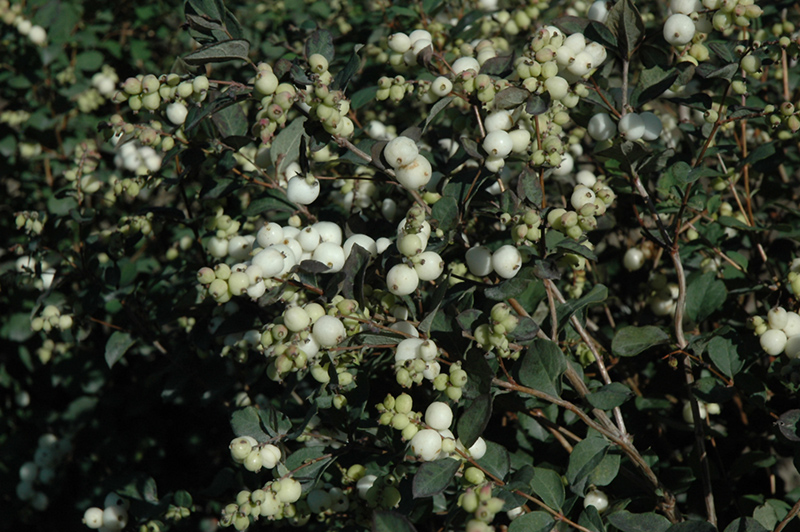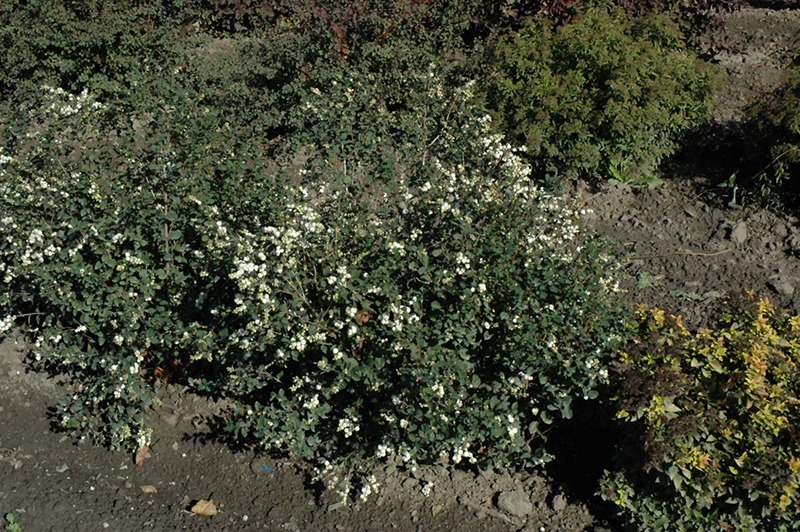Bloch's Farm
Open 7 Days a Week 8am-6pm
Plant Library
Galaxy™ Coralberry
Symphoricarpos x doorenbosii 'Kolmgala'
Height: 3 feet
Spread: 3 feet
Sunlight:
![]()
![]()
Hardiness Zone: 3b
Other Names: Hybrid Snowberry
Brand: First Editions
Description:
A versatile small shrub valued for its clusters of large white glossy berries that persist into winter along the gracefully arching branches, great for cutflower arrangements, a highly ornamental compact rounded shrub; excellent for mass plantings
Ornamental Features
Galaxy™ Coralberry is primarily grown for its highly ornamental fruit. It features an abundance of magnificent white berries from early fall to late winter. It features subtle white bell-shaped flowers along the branches in early summer. It has bluish-green foliage with grayish green undersides. The oval leaves do not develop any appreciable fall color.
Landscape Attributes
Galaxy™ Coralberry is a dense multi-stemmed deciduous shrub with a shapely form and gracefully arching branches. Its average texture blends into the landscape, but can be balanced by one or two finer or coarser trees or shrubs for an effective composition.
This shrub will require occasional maintenance and upkeep, and can be pruned at anytime. It is a good choice for attracting birds to your yard, but is not particularly attractive to deer who tend to leave it alone in favor of tastier treats. Gardeners should be aware of the following characteristic(s) that may warrant special consideration;
- Suckering
Galaxy™ Coralberry is recommended for the following landscape applications;
- Mass Planting
- General Garden Use
- Naturalizing And Woodland Gardens
Planting & Growing
Galaxy™ Coralberry will grow to be about 3 feet tall at maturity, with a spread of 3 feet. It tends to fill out right to the ground and therefore doesn't necessarily require facer plants in front. It grows at a fast rate, and under ideal conditions can be expected to live for approximately 15 years.
This shrub does best in full sun to partial shade. It is very adaptable to both dry and moist locations, and should do just fine under typical garden conditions. It is not particular as to soil type or pH. It is somewhat tolerant of urban pollution. This particular variety is an interspecific hybrid.


